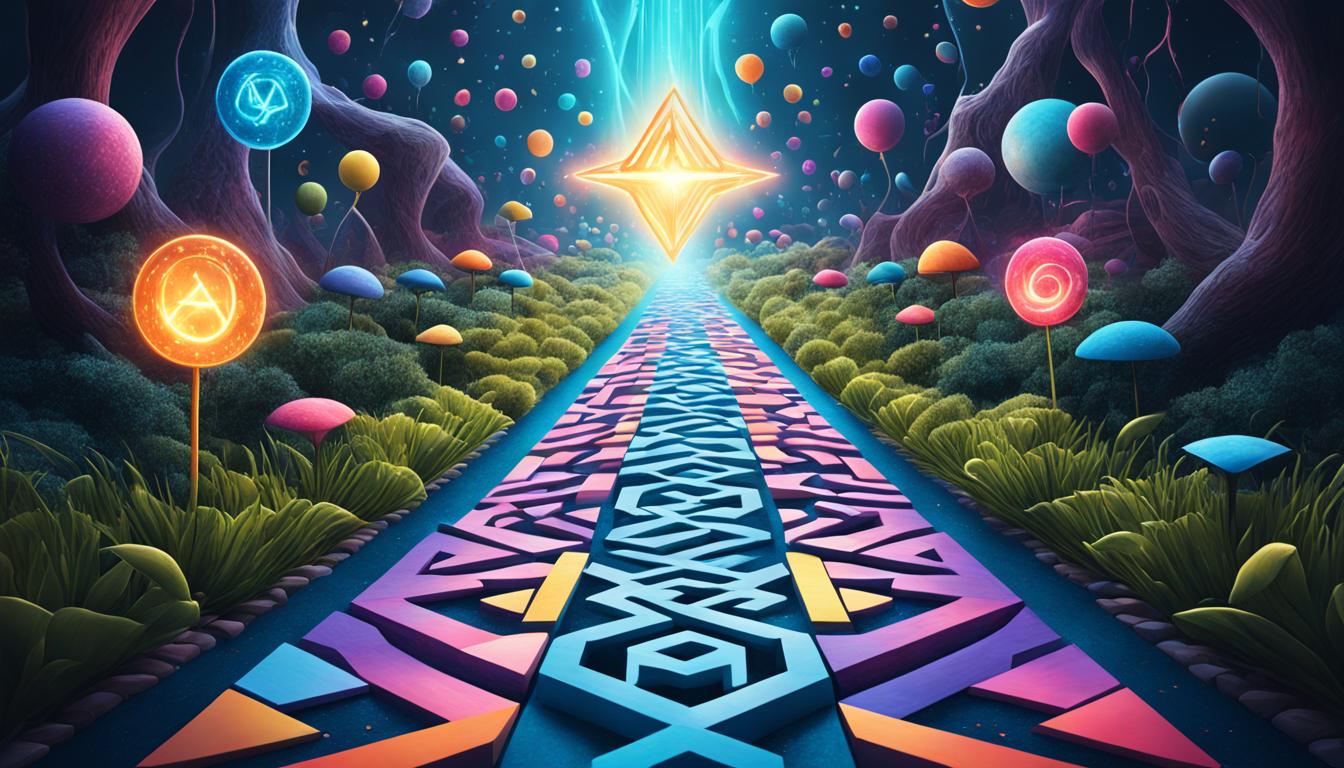Unlock Your Dreams’ Meanings with Numerology!
Have you ever wondered what lies beyond the surface of your dreams? Do you feel like there is a hidden language that your subconscious is trying to speak? Unlocking the mysteries of your dreams could be closer than you think, with the ancient practice of numerology as your guide.
For centuries, dreams have captivated our imagination and sparked curiosity about their significance. They offer a window into our deepest thoughts, emotions, and desires. But what if there was another layer of meaning that we have yet to explore?
Numerology, a powerful tool in dream interpretation, helps us decode the symbolic messages that our dreams are trying to convey. By assigning numerical values to the elements within our dreams, we can uncover the hidden narratives and gain a deeper understanding of ourselves.
Key Takeaways:
- Numerology can unlock the hidden meanings within our dreams.
- Combining numerology with dream interpretation bridges the gap between our conscious and subconscious minds.
- Assigning numerical values to dream elements reveals their symbolic significance.
- Understanding common dream symbols through numerology helps uncover subconscious messages.
- Exploring the numerological meanings in our dreams provides greater clarity in navigating our emotions and aspirations.
The Intricacies of Numerology in Dream Interpretation
In the realm of dream numerology, dreams and numbers hold symbolic significance. Each element within a dream, such as objects, actions, or people, can be associated with a specific numerical value. By assigning numerical values to these dream elements, we can unlock the deeper meanings they represent. Numerology involves reducing multi-digit numbers to single digits, which reveal the core essence of the number.
Each number in numerology carries distinct traits, energies, and symbolism. By applying these meanings to the elements in our dreams, we can uncover the hidden messages that our subconscious is trying to communicate. By connecting the numerological meanings and analyzing how the different elements interact with each other, we gain a deeper understanding of the underlying narrative within our dreams.
Example:
Let’s consider an example: dreaming of the number 3. In numerology, the number 3 is associated with creativity, communication, and self-expression. When we encounter the number 3 in our dreams, it may indicate that we need to pay attention to our creative side or express ourselves more freely.
“Dreams are the whispers of our soul. Numerology acts as the decoder, translating those whispers into meaningful messages that guide our waking lives.” – Sarah Johnson, Dream Numerologist
By delving into dream numerology, we unlock a hidden realm of insight and self-discovery. The intricacies of numerology enrich our understanding of dreams, providing a fascinating tool to decode the symbolic significance of the elements within our dreams. Through numerological interpretations, we gain a deeper connection to our subconscious, allowing us to navigate our emotions, challenges, and aspirations with heightened clarity and wisdom.
Decoding Common Dream Symbols using Numerology
Dreams offer a window into our subconscious, and they often contain common symbols that hold significant meaning when examined through the lens of numerology. By understanding these symbols and their numerological interpretations, we can gain valuable insights into our deepest thoughts and emotions.
One prevalent symbol in dreams is animals or bugs, which can represent our survival instincts and our connection to the natural world. For instance, encountering a spider in a dream may signify resourcefulness and creativity, while seeing a wolf can reflect a need for independence and leadership.
Teeth falling out is another common dream symbol that can carry numerological significance. This symbol often relates to our fears of the passage of time and our anxieties about the consequences of past mistakes. It may indicate a need to confront and overcome these fears in order to move forward.
Additionally, movement in dreams, such as traveling, falling, or flying, can unveil our unsettled emotions or a longing for personal growth. These symbols can reflect our subconscious desire for new experiences or our internal struggle to face challenges and overcome obstacles.
By exploring the numerological interpretations of these common dream symbols, we can unlock the messages hidden within our subconscious. Whether it’s deciphering the significance of nightmares that represent deeper fears or understanding the symbolism behind dreams of love and relationships, numerology provides a powerful tool for interpreting the meaning of our dreams and gaining a deeper understanding of ourselves.






